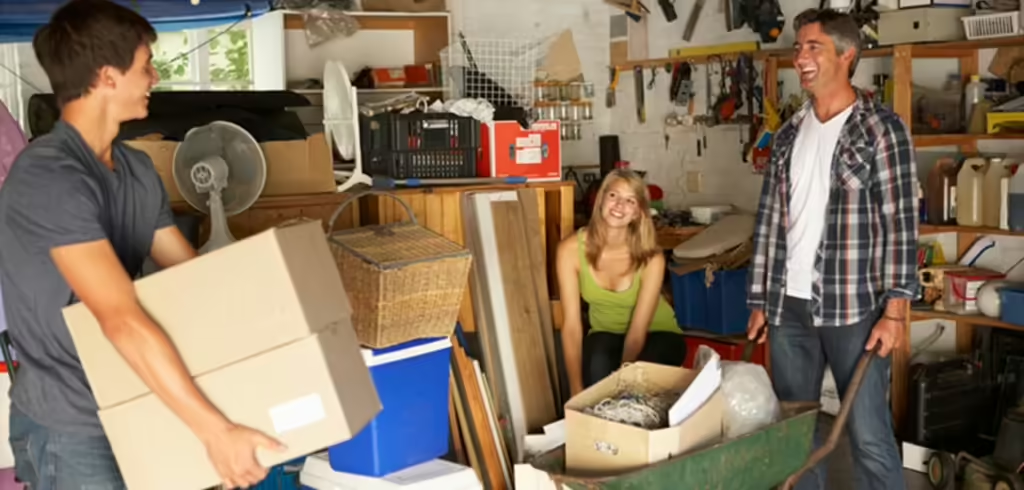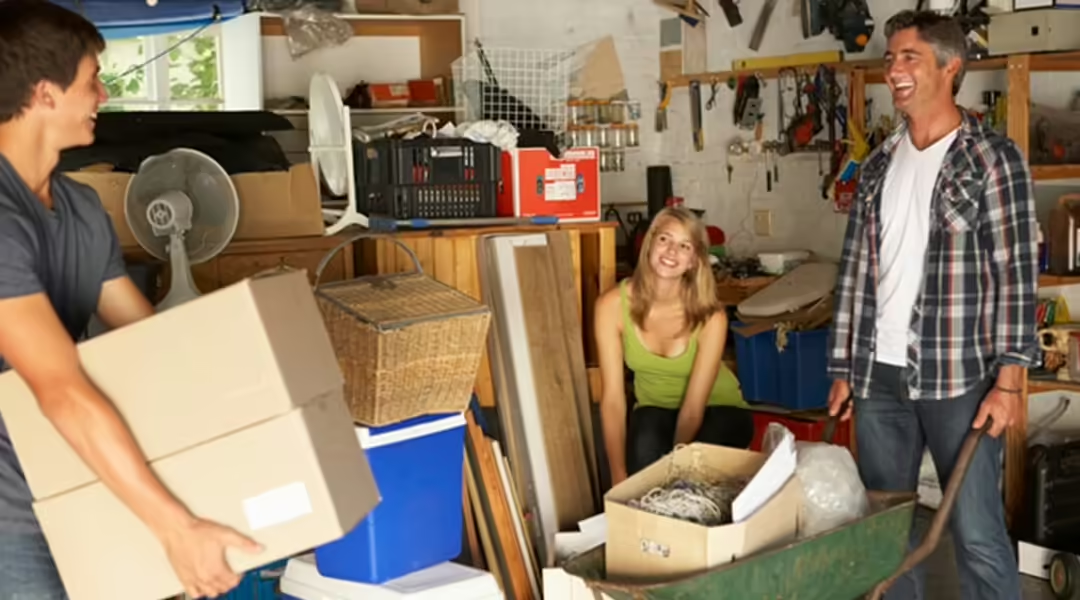
Most of us are really squeamish about the word ‘death’ – we run a mile from it. Similarly with the term ‘funeral’ – it’s difficult to bring ourselves to read articles about planning for our own demise. We’re more interested in living, than dying, right?
But there is a compelling reason why we do need to think ahead and plan.
And that’s because most of us would walk over burning coals for our loved ones – so leaving them with a mess is not how we want them to remember us.
That may be a reason for the increasing popularity of TV shows such as The Gentle Art of Swedish Death Cleaning. While this program concentrates more on the emotional and clutter clearing aspect of leaving things in good order, it does prime your mind about your legacy, be it material, financial or spiritual.
First things first
The main message is ‘Don’t leave a mess’, whatever shape this might take. There are three main types of mess and they fit into the parameters mentioned above:
- Material – meaning your home, your possessions, your ‘stuff’
- Financial – your savings, your super, your property and any other investments, debts or obligations.
- Spiritual – your emotional legacy, the status of your relationships, your family ties and responsibilities, perhaps your faith.
Let’s tackle them in order of importance, starting with the spiritual.
How you will be remembered
Money matters a lot, but how we behave and how we are remembered is the true definition of our time on earth. If we are lucky, we have loving friends and family and good ties to our community, be it local, global or both. But most of us will also have some unresolved matters and some fractured relationships. That’s life. But we don’t have to think that things can never be fixed, or at least acknowledged. Far too often we attend a funeral and learn things about someone who we thought we knew well. Sometimes we carry regrets about things we didn’t say or do. Sometimes families experience deep rifts which cause hurt and sadness for decades. It’s a truism, but the only person who can address your issues is you. It’s very sad if we miss opportunities to be honest and to set things right.
There’s no need for a legal or financial mess
Apart from creating a future legal or administrative nuisance, leaving unsorted financials is extremely unfair to your nearest and dearest. Many people still do not have a will. There is actually no excuse for this as there are inexpensive options for those with simple affairs and those with more complex situations will need some form of legal input regardless. It all comes back to a clear definition of your assets and your intentions. This applies to:
- your home and any other property
- your superannuation
- your savings and investments
- any business relationships
- your Power of Attorney and
- your advance health directives
There is a lot to understand and to think about here. In Noel Whittaker’s excellent book, Wills, death and taxes made simple, he explains all these factors clearly. There are few shortcuts here – you really do need to think about who your beneficiaries will be and how your assets will be divided. In particular, having a Binding Death benefit Nomination for your super means there will be no confusion about how this will be handled by a trustee. And understanding Centrelink rules when someone dies means that you can ensure you have done all you can to smooth the way for a spouse. For couples, having a separate bank account is a helpful way to ensure you retain access to funds for daily living expenses without interruption.
Your home and possessions
This is the tricky part. One man’s (or woman’s) treasure is often another’s trash. We can become highly emotional when it comes to our possessions. Ask any downsizer. The common experience is that they cannot believe how much unwanted stuff they were able to gift, sell or discard when they had to make hard decisions when moving to a new residence. If you are a hoarder, the question to ask yourself is whether you really want your loved ones to reel back in horror when they need to handle the sale of your home or the sorting of possessions in a rental situation. Some people are psychologically unable to throw anything out – true hoarding is a recognised mental illness. Such people may need some medical support. But this is relatively rare – about 2.6% of the population. The rest of us can just be lazy or complacent and simply watch the slow build up of unneeded possessions for years, as there is no compelling reason to shift this stuff. If you are in this group, then taking action while you are still fit and able makes a lot of sense. How many Tupperware containers without lids can any house need? So why not inspire yourself by watching The Gentle Art of Swedish Death Cleaning on SBS on Demand, reading the book The Life-Changing Magic of Tidying Up by Marie Kondo or by asking a friend to help. Your local op-shop will love you, but your family will love you more. And somewhat perversely, you’ll feel kilos lighter even though it’s not body weight that you’ve shed.
And one more thing …
It’s time to talk about your online presence, or ‘digital assets’ as they are sometimes called. There is nothing worse than having a haunting presence on Facebook or Instagram long after you’ve gone. It’s actually quite stressful for those who love you if you pop up unexpectedly in their socials. You can handle this in a couple of different ways. You can appoint a ‘digital executor’, entrust them with your login and password details, and ask them to close or delete all relevant accounts. Or you can share a list of all these details with family and friends and again, leave instructions so that someone manages matters according to your wishes. Some families will choose to keep you ‘alive’ online – it’s entirely personal.
There, now, we’ve done it! We’ve had a straightforward discussion about your death and some of the things you can choose to do now to ensure those you care about will have the easiest possible journey at the time of your passing.
Are you actively putting things in place for your nearest and dearest?
Or is it something you are ‘getting around to’ at some stage?
Helpful resources
Noel Whittaker has created an Executor’s and Attorney’s Cheat Sheet which is a comprehensive downloadable PDF allowing you to share all necessary information with those who matter to you. It’s free and a brilliant way of summarising your assets, wishes and other important details.
Centrelink also provides support and services when someone dies. We wrote about this is in When a loved one dies… how does Centrelink help?
And if you would like to create a simple will Retirement Essentials members can get 20% off the cost of a will by Willed.






people seem to be in a hurry to get the financial affairs finalised, but taking your time can be beneficial.
for starters centreline will ignore assets for a period of time after death. they are not considered (yet) as the surviving partners. this will probably mean that the surviving partner will get more pension until the estate is distributed.
then, if there are capital gains on assets owned by the deceased, perhaps realising those gains in the name of the estate and distributing the asset as cash may improve the tax situation. the estate is a taxable entity and therefore why not generate some cgt in the name of the estate and pay tax at a possibly lower rate.
then, consider the situation where the deceased owns an investment property. two ideas. have the sick person more into the investment property just before death. the property then becomes cgt free for two years after their death. alternatively, set up a testamentary trust. when it is sold, you can distribute the gain amongst many relatives including minors (who gets about $20k tax free). better than having only the surviving spouse pay the whole tax liability.
don’t be in a hurry to finalise an estate. taking your time can bring benefits
Hi John, thank you for sharing your thoughts. Taking time and consideration with all financial matters makes sense and it is good to plan ahead where possible because seeking legal and financial advice can save a lot of headaches in advance.
PLEASE advocate on behalf of everyone to have this rule change reversed. Recently the government changed the rules on Binding Death Nominations for superannuation. Now, this lapses if it is more than 3 years old !!! Imagine if they did that with Wills !! There is no reason to have it lapse. The major problem is that many people **will** get some sort of sickness that legally bars them from filling in another BDN in the last years of their life. Many people have dementia for far more than 3 years – and they are legally barred from filling in that BDN. This means that their super then is taken by the ATO. It does not go to who the person wants it to go to. This is criminal. PLEASE advocate on behalf of everyone to bring back NON LAPSING Binding Death Nominations, which used to exist !!
Hi Helly, thank you for raising your concern. Some super funds do have non-lapsing versions so as with most things we write about it is important that people speak with their specific fund about what options they offer and if it suits your needs. In the event it has lapsed the superannuation trustee does take past nominations into account though.
hi what happens to your nominated beneficiary should they also pass away and were too old to nominate other beneficiaries, ie are you allowed to nominate both your children as beneficiaries.
Hi Kathleen, great question! As is often the case different superfunds have different processes so it is best to double check with yours as to the options available.
The link you gave above for Noel Whittaker’s cheat sheet is not editable on a computer.
This link has an editable PDF version. A much better method. If you can’t use a computer to fill in the details then it can be printed (all 46 pages) then the use of an analogue pen will work.
https://www.noelwhittaker.com.au/wp-content/uploads/2024/07/Executors_and_Attorneys_Cheat_Sheet_F_260724a.pdf
Hi Barry, thank you for sharing the editable version, we’ve updated our link to this copy for added convenience.
Excellent article. Things I learned were having a surviving partner bank account and looking after your digital presence.
Thanks for the feedback Peter!